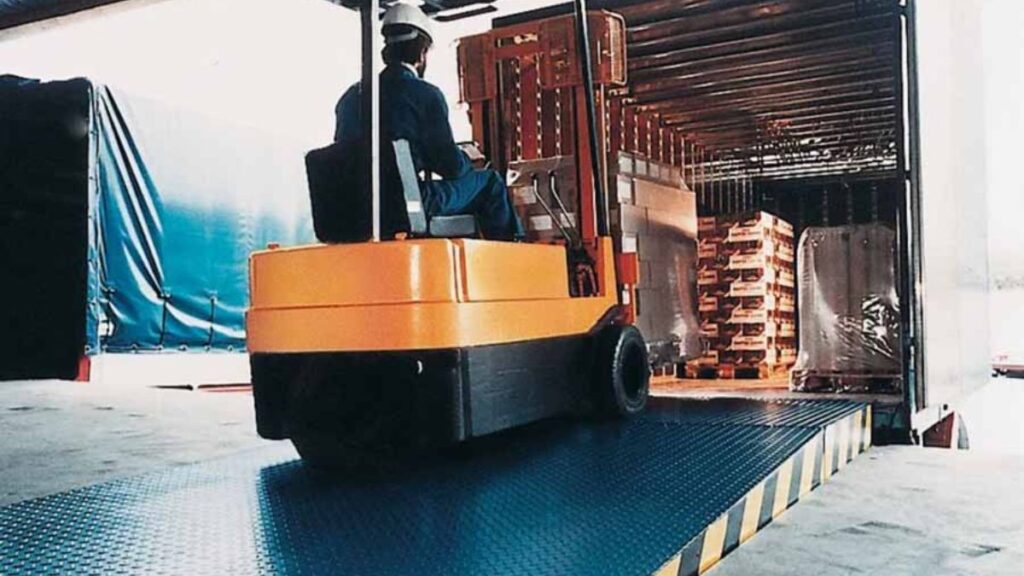Introduction
In the logistics and warehousing sectors, loading bays serve as critical touchpoints for goods movement. These transitional zones see constant interaction between forklifts, pallets, and transport vehicles, all under time-sensitive conditions. Without the right equipment, these busy zones can become hotspots for accidents, inefficiencies, and operational delays.
One of the most essential components of a modern loading bay is the hydraulic dock leveler—a device designed to bridge the height gap between the dock and the vehicle trailer. But it’s not just the equipment that matters. The reliability, expertise, and service provided by hydraulic dock leveler suppliers play an equally important role in ensuring that loading bays function safely and efficiently. This article explores how such suppliers contribute to optimized, secure, and productive loading dock operations.
The Vital Role of Hydraulic Dock Levelers
Hydraulic dock levelers are designed to compensate for the vertical gap between loading docks and various vehicle heights. By creating a smooth, adjustable platform, they allow forklifts and pallet jacks to safely travel between the dock and truck bed without interruption.
Compared to mechanical dock levelers, hydraulic versions offer more advanced safety features, quicker deployment, and reduced operator strain. These advantages make them ideal for high-traffic warehouses, cold storage units, manufacturing plants, and distribution hubs.
However, realizing the full benefits of these systems depends heavily on choosing the right supplier.
Why Hydraulic Dock Leveler Suppliers Matter
1. Tailored Solutions for Unique Operational Needs
Not all loading bays are the same. Factors like dock height, truck types, freight volume, and environmental conditions (e.g., temperature-controlled storage) all influence what kind of dock leveler is most suitable. Knowledgeable hydraulic dock leveler suppliers assess these parameters to recommend the right specifications.
They help clients determine weight capacity, platform dimensions, lip types, and control features to ensure the equipment aligns perfectly with the facility’s needs—thereby improving safety and preventing costly mismatches.
2. Compliance with Safety and Regulatory Standards
Suppliers who specialize in hydraulic dock levelers are well-versed in local and international safety regulations. From anti-slip surfaces to emergency stop systems and toe guards, the equipment they provide adheres to strict safety criteria.
By supplying certified, regulation-compliant equipment and offering training on safe operation, these suppliers reduce liability for businesses while fostering a culture of safety within loading dock teams.
3. Installation Expertise and Structural Integration
Improper installation of dock equipment can compromise not only performance but also worker safety. Reputable suppliers coordinate or supervise professional installation, ensuring that dock levelers are mounted securely and calibrated correctly.
Some may also offer civil engineering insights to assess flooring strength, pit design, and space planning. This attention to detail ensures seamless integration and long-term structural integrity.
Enhancing Efficiency Through Supplier Support
1. Minimizing Downtime with Reliable Service
Downtime at a loading dock can delay shipments, affect productivity, and disrupt the entire supply chain. This makes proactive maintenance and quick service response times essential.
Established hydraulic dock leveler suppliers offer preventive maintenance plans, spare parts availability, and rapid troubleshooting. By detecting issues early and providing timely support, they help keep operations running smoothly and efficiently.
2. Training and Operational Guidance
Safety and efficiency go hand in hand. Suppliers often provide training sessions to teach warehouse personnel how to operate hydraulic dock levelers properly. These sessions may cover load capacity limits, daily inspections, safety lock usage, and emergency procedures.
Trained operators make fewer mistakes, handle equipment more efficiently, and are better prepared to respond to malfunctions—leading to fewer accidents and delays.
3. Upgrading and Retrofitting Older Systems
As technologies evolve, older dock equipment may fall short of current performance or safety standards. Suppliers with technical expertise offer upgrade paths or retrofit solutions, allowing businesses to enhance performance without a full equipment replacement.
These upgrades might include adding automatic controls, improved safety features, or energy-efficient hydraulics—each contributing to a more effective loading bay environment.
Integrating Safety with Broader Facility Security
While internal dock safety is crucial, external site protection is equally important—especially in logistics centers handling high-value or sensitive cargo. This is where high-security road blockers in modern urban infrastructure play a vital role, providing a strong physical barrier to prevent unauthorized vehicle access and enhance overall site security.
Road blockers are high-strength barriers designed to prevent unauthorized vehicular access, acting as the first line of defense for loading bay zones. When combined with well-maintained dock levelers and procedural safety, these barriers create a comprehensive safety framework.
Forward-thinking suppliers often work alongside security teams to ensure dock systems integrate smoothly with access control measures, perimeter defenses, and surveillance infrastructure.
Conclusion
Safe and efficient loading bays are a cornerstone of modern industrial logistics, and hydraulic dock levelers play a central role in ensuring smooth and secure transitions between transport vehicles and warehouse floors. But the equipment alone is only as effective as the support behind it.
By working with reputable hydraulic dock leveler suppliers, businesses gain access to customized solutions, technical expertise, and ongoing support that collectively improve safety, reduce downtime, and enhance productivity. These suppliers do more than deliver equipment—they deliver peace of mind.
In an industry where precision and safety are non-negotiable, selecting the right supplier is a strategic decision that pays dividends in operational excellence.






